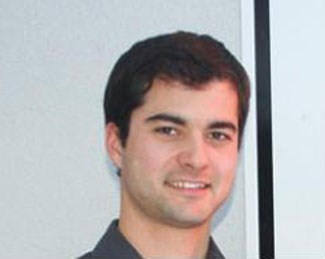When Dr. Bret Batchelor arrived in Vanderhoof as a medical school trainee he quickly became interested in the operating room at St. John Hospital.
Rural surgery is becoming increasingly scarce in rural B.C. and in Canada generally, so Batchelor found the idea of working in a community with an operating room exciting. After graduating and setting up shop as a family doctor in Vanderhoof, Batchelor took the next step and a decided to get special training to do some basic surgical procedures.
"The current people doing surgery were all over 50 years old and looking in the future at retirement at some point and there's nobody able to step up into those positions because we didn't know where the training was," he said.
After making some calls, Batchelor discovered the enhanced surgical skills (ESS) program run out of the University of Saskatchewan in Prince Albert. The one-year program, which Batchelor completed last June, gave him the training to do everything from vasectomies and tubal ligations to Caesarean sections.
"Now I spend about half of my time doing things related to surgery and the other half of my time I maintain my GP services and do emergency medicine, inpatient medicine and obstetrics," he said.
ESS doctors like Batchelor are critical to maintaining surgical care in the rural communities that are common in B.C.'s north and interior. They work alongside other family doctors who have taken special training in anesthesia as well as operating room nurses and others.
During his time in Prince Albert, Batchelor said he was on call virtually every day so that he could get enough experience on the required surgeries to get qualified.
The ESS doctors are trained by specialists and play a key role in the Prince Albert hospital.
"They were very supportive," he said of the surgeons who trained him. "The ESS residents have now become an established thing in that hospital so all the nurses all of the physicians that are involved with the ESS know that resident and know that we are very hardworking reliable people who are able to add an additional level of service to their hospital."
Batchelor is one of a handful of ESS doctors in Vanderhoof, which makes the caseload workable for all of them. He believes St. John Hospital's operating capability makes it easier to attract doctors which is why Vanderhoof is blessed with a vibrant medical community.
"One reason I'm a big advocate for having surgical suites in certain small towns is that is allows for a real core stabilization of the physicians in that area," he said.
Batchelor and other ESS doctors are trained in about 20 different procedures that fall into specific categories like hernias and carpal tunnel and trigger finger releases.
"When you look at all the disciplines in surgery there are only certain things we can do as GPs that we feel comfortable doing because they're not majorly invasive and don't require large periods of operating time," he said.
In addition to the ESS scope of practice, patients in Vanderhoof and other rural communities with operating rooms benefit by having visiting specialist surgeons come to town to take advantage of increased operating room time and to provide more local care to their rural patients.
"There's an enormous opportunity for outreach surgery," said Dr. Stu Iglesias, the ESS lead for the Rural Co-Oridination Centre of B.C. "If you look at Vanderhoof, for example, their OR goes flat our for most of the week and only a portion of the surgery done there is done by docs who live in Vanderhoof."
Surgical care in Vanderhoof has benefits for other parts of the Nechako region.
Since ESS doctors can do emergency c-sections when required, more expectant mothers can stay closer to home to deliver their babies. For instance, doctors in Fort St. James can handle low-risk deliveries knowing that surgical backup is just down Highway 27 if needed.
"For very low risk patients who meet a certain criteria, they're able to deliver in their hometown because we have this here," Batchelor said. "Whereas if Vanderhoof didn't have an operating room all of the patients in the Bulkley-Nechako area would all have to go to Prince George to deliver their babies."
Vanderhoof is seen as a model for those advocating for rural surgical care. For decades the hospital has been able to maintain its operating room while other facilities of its size have seen their surgical capacity disappear.
"Vanderhoof has always been one step ahead of everyone else," said Dr. Brian Galliford, medical lead for Northern Health's perinatal program. "They've looked into the future because they've always had somebody there that can do c-sections."



